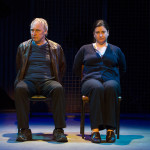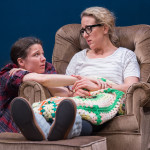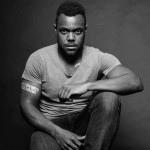To be an actual immigrant in this country of immigrants, is to be a sort of an outsider with a foot in the door. We pride ourselves on being the land of the free, but sadly as the last representation matters article explained, it’s been proven through history that we are only to be presented if we are white washed for a general audience. Meet Rebecca Aparicio, the Cuban wonder whose drive to put immigrants and Latinx on the map is only matched by her vision to create work that raises awareness. Having finished a directing observer-ship on the York Theatre‘s production of “Desperate Measure,” Aparicio has gone back to working relentlessly in both producing events that create consciousness, as well as writing incredible historical pieces like the musical “Pedro Pan” and recording an EP with her bluegrass band Wild Magnolias. Ambitious with a big heart, the world would be better off if we had a few Rebeccas instead of one. But alas, we are not that lucky, so get to know the one and only Rebecca Aparicio in the interview below.
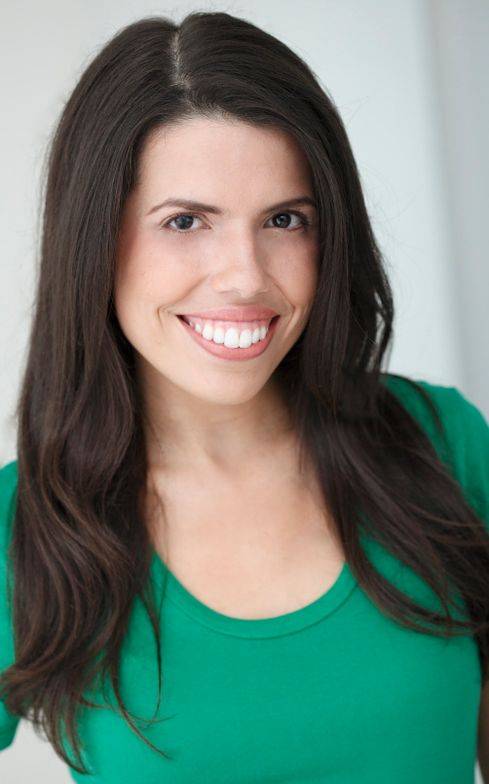
- Could you tell us what you do and how do you identify yourself?
- Hi, I’m Rebecca Aparicio and I am a Latinx Director/Writer/Producer/Performer.
- As part of an ethnic community, how did you feel while developing your art? Was your community supportive of your work?
- Growing up in Miami with a family who loved the performing arts, I was exposed at a very young age to plays and musicals. I saw plays with school field trips and saw plays in Spanish and in English with my family. My family also allowed me to torture them by watching plays that I “produced” in my house and my grandparents’ house. My poor little sister and my poor little cousin, I subjected them to rigorous rehearsals and performances! So I would have to say I was very lucky to be encouraged to pursue my creativity.
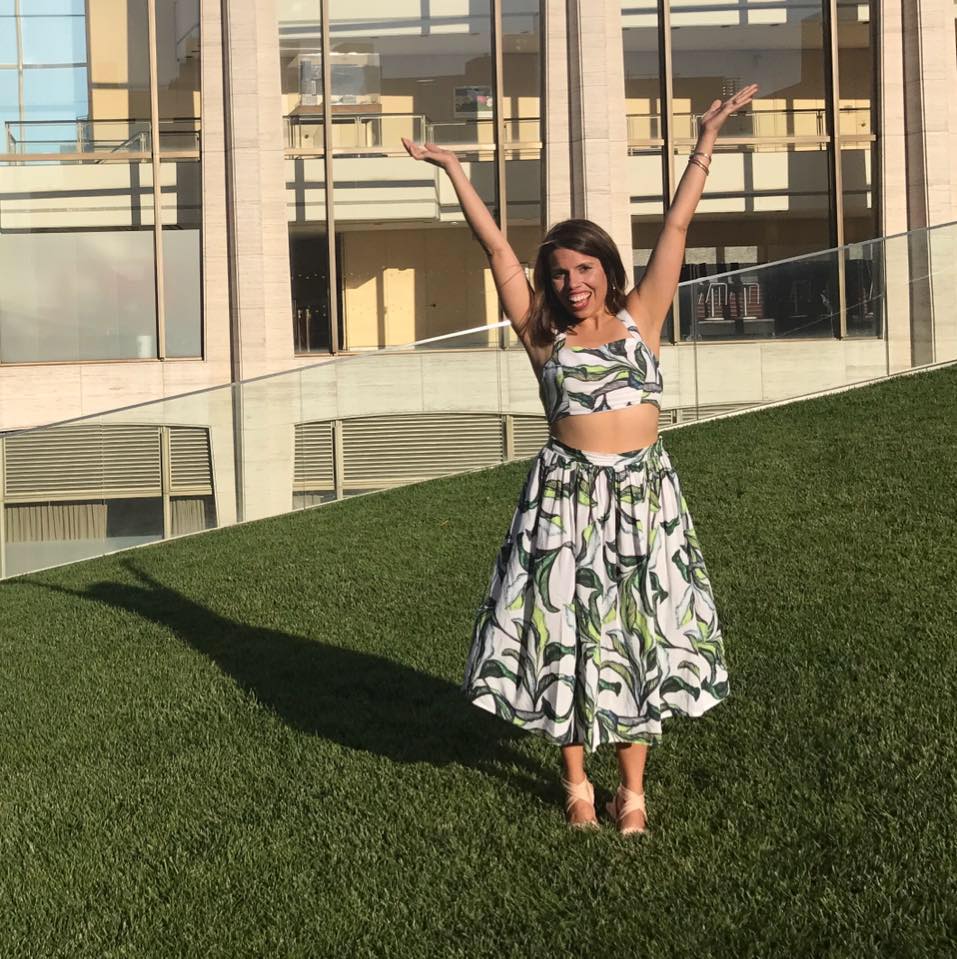
- Growing up in Miami with a family who loved the performing arts, I was exposed at a very young age to plays and musicals. I saw plays with school field trips and saw plays in Spanish and in English with my family. My family also allowed me to torture them by watching plays that I “produced” in my house and my grandparents’ house. My poor little sister and my poor little cousin, I subjected them to rigorous rehearsals and performances! So I would have to say I was very lucky to be encouraged to pursue my creativity.
- Who was the first person that you remember seeing represented you in mainstream media?
- John Leguizamo is that person for me. I remember watching his FREAK HBO special as a kid and feeling like he was speaking directly to me. I had never seen myself on stage or on TV unless it was “Que Pasa USA,” a television show from the 70’s. To watch someone bring to life all these characters that were representations of people in my family or people that I knew growing up, felt like HOME in a way that is hard to describe. I just remember feeling this overwhelming connection to the work in many levels, not just the American in me—but the Cuban in me, too. His play represented ALL of me and it was such an incredible feeling to experience. I was also FASCINATED by the fact that he wrote and performed his own work. I had that lightbulb moment of “WOW, YOU CAN DO THAT, TOO.” It was the most liberating theatrical experience of my life. After watching FREAK, I became obsessed with all of John’s work and continue to be obsessed to this day.
- How much of your identity goes into your work?
- A LOT. As a writer/director, I feel it’s my responsibility to create opportunities for fellow Latinx and POC actors and artists, because although things are changing, there are still very limited opportunities for POC.
- Has your race/identity get in the way of your goals? Has it make it easier or harder?
- I remember being a little kid and my dad sitting me down and saying that I was going to have to work harder in the world because I was a woman and I was a minority. I remember thinking, “What is he talking about?” I was living in Miami where everyone looked like me and were first-generation like myself. I was surrounded by strong, powerful women in my family, so I had no idea what he meant! Only later as an adult have those words reverberated in my mind as it has manifested itself to be true in a variety of ways. I definitely think as a performer it was harder to be Latinx. I was “too white” for the Latinx roles and too “ethnic” for white roles. I don’t know if it’s easier or harder, only that it is what it is and I wouldn’t trade being Cuban-American for the world!
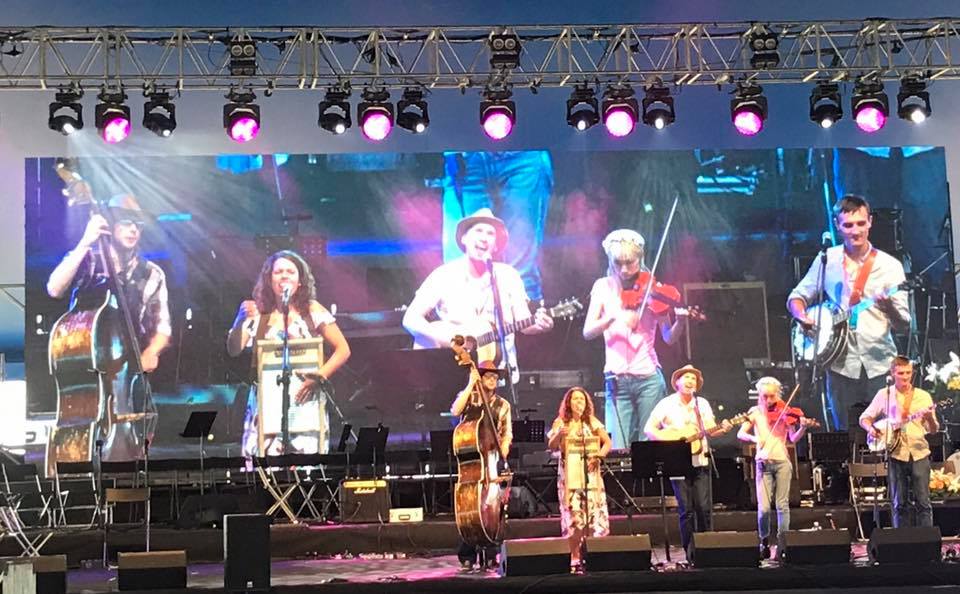
- I remember being a little kid and my dad sitting me down and saying that I was going to have to work harder in the world because I was a woman and I was a minority. I remember thinking, “What is he talking about?” I was living in Miami where everyone looked like me and were first-generation like myself. I was surrounded by strong, powerful women in my family, so I had no idea what he meant! Only later as an adult have those words reverberated in my mind as it has manifested itself to be true in a variety of ways. I definitely think as a performer it was harder to be Latinx. I was “too white” for the Latinx roles and too “ethnic” for white roles. I don’t know if it’s easier or harder, only that it is what it is and I wouldn’t trade being Cuban-American for the world!
- Representation Matters… why?
- Because EVERYONE deserves to have that feeling that I had watching FREAK as a young kid. It’s the craziest thing to realize as an adult, how you’ve gotten used to not seeing yourself represented and that it doesn’t really bother you. But then when you DO see yourself represented, you realize—Hey, wait a minute? There’s a place for me, here?
Representation also matters because theatre can play an active role in exposing an audience to issues and people that they wouldn’t encounter in their every day life and this is critical in terms of humanizing issues. If you grow up in an area without racial minorities or without a large LGBTQ community, I can understand how you might feel threatened by those communities because you just aren’t familiar with them. That’s just basic human instinct to feel threatened by the unknown. Through art, we can expose communities to each other, which is INCREDIBLY important in creating empathy and compassion.
- Because EVERYONE deserves to have that feeling that I had watching FREAK as a young kid. It’s the craziest thing to realize as an adult, how you’ve gotten used to not seeing yourself represented and that it doesn’t really bother you. But then when you DO see yourself represented, you realize—Hey, wait a minute? There’s a place for me, here?
- Let’s talk about your work. What are you doing nowadays? What do you have coming up?
- My bluegrass band Wild Magnolia is about to record an EP! My husband and I recently were selected to be a part of one of Musical Theatre Factory’s Writing Group for our show Pedro Pan, so we are digging deep into reworking our piece for the next year.
- Any words you would like to share with those people that think they don’t have a chance because of how they identify themselves?
- There is a place for you, there is a place for everyone. The world is changing, keep at it and don’t give up. You have something special that the world needs you to share.
- And to round it up, if you had unlimited funding for a project, what would you do?
- Produce my own work and works for and by POC artists. I would like to create theatre which is accessible to all, regardless of socio-economic status, create philanthropic theatre, and community.

